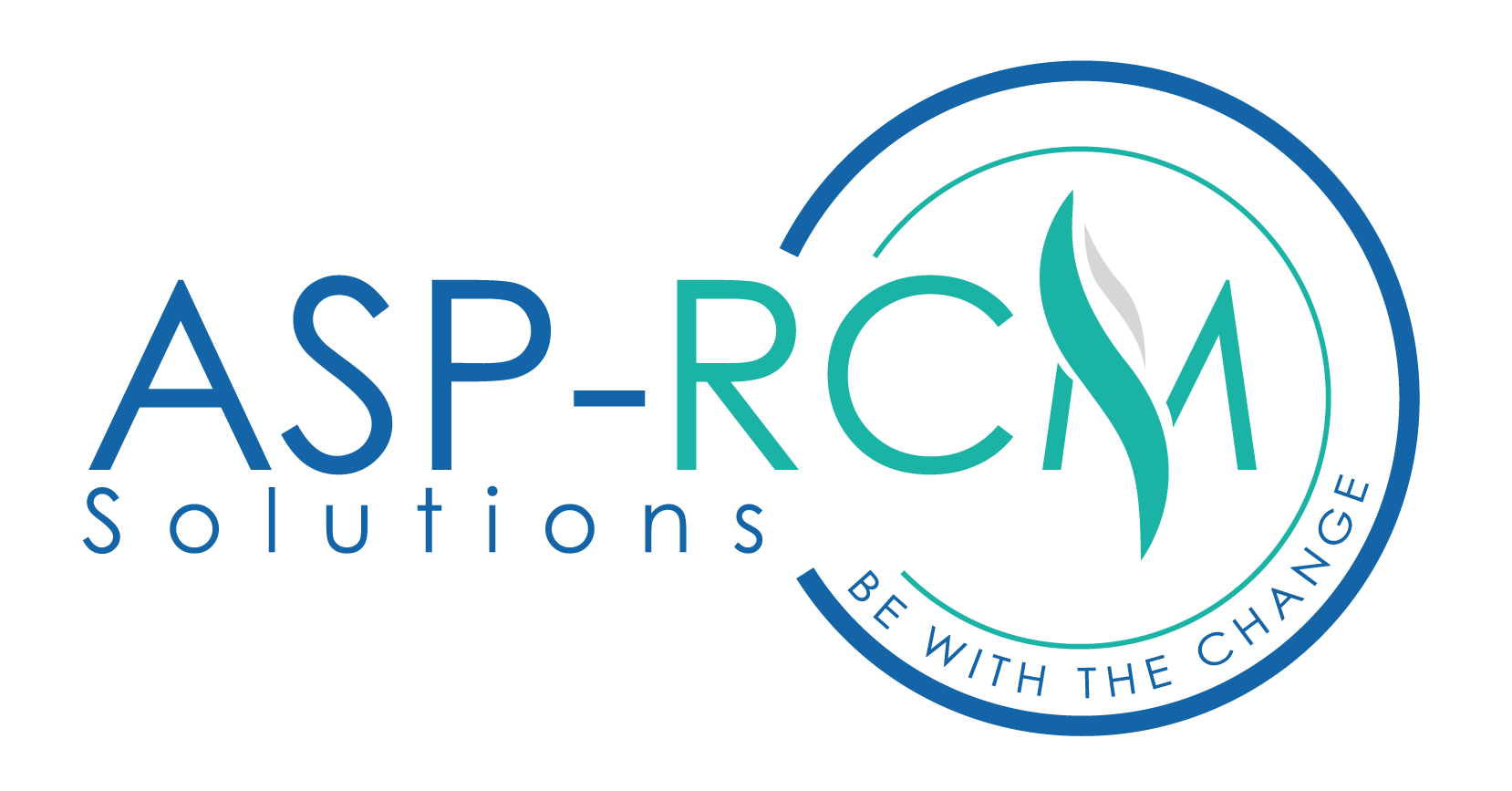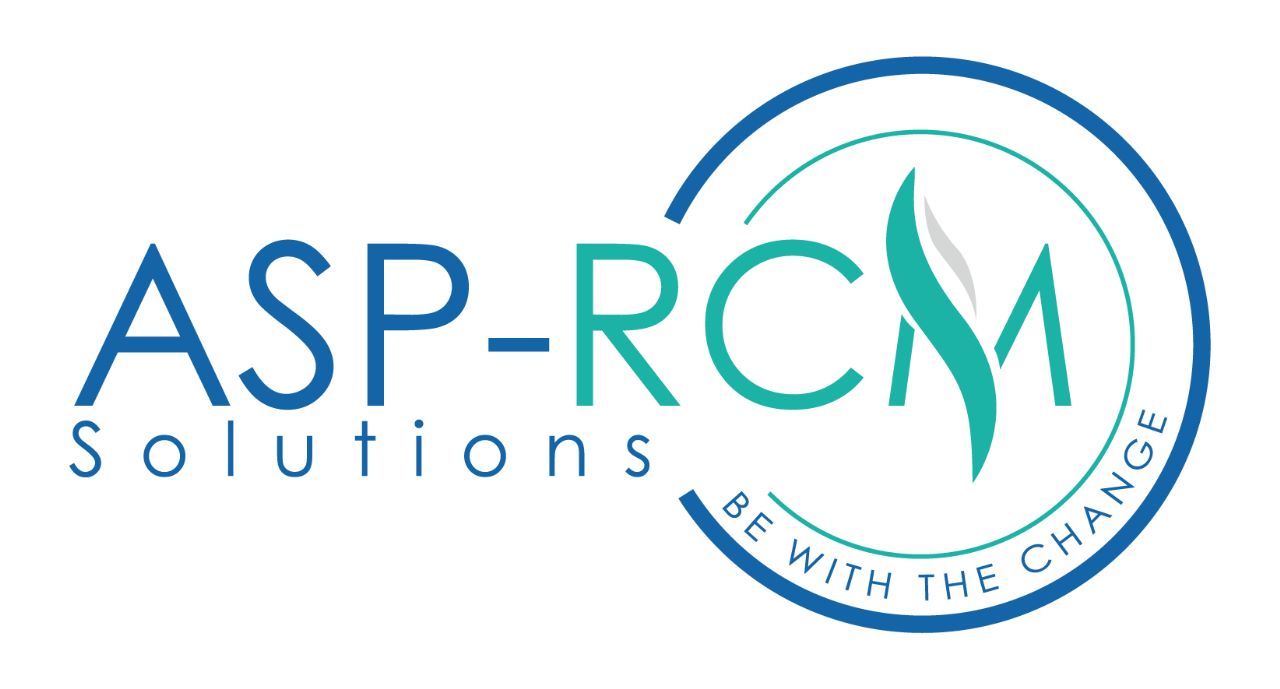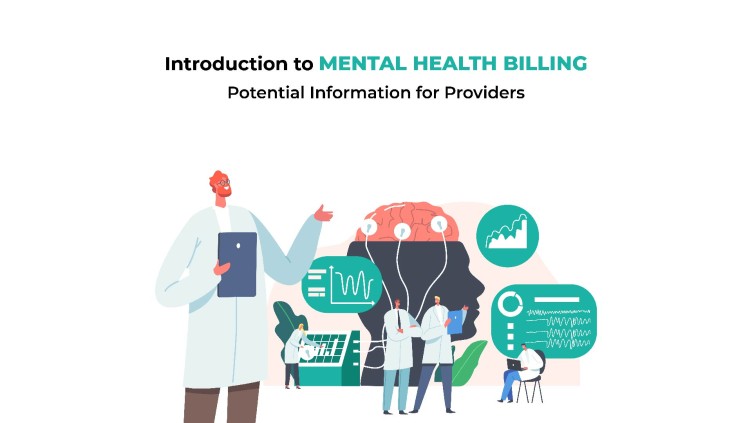
September 27, 2023
Introduction to Mental Health Billing – Potential Information for Providers
Mental health revenue cycle management (RCM) is essential for maintaining a profitable mental health practice. It concerns the financial processes and procedures required to ensure correct and timely compensation for mental health services. While the fundamental notion of Revenue Cycle Management is similar across many healthcare specializations, Mental Health Billing has its issues and obstacles.
The intricacy of services is one of the key differences between mental health and medical billing. Treatments for mental health illnesses and disorders may necessitate a more thorough and holistic strategy that includes therapy sessions, medication administration, and continuous care coordination. As a result, mental health billing necessitates a more in-depth awareness of the nuances involved in effectively recording and coding mental health services.
 Furthermore, mental health billing necessitates special codes, such as the Evaluation and Management (E/M) codes. These codes are used to represent the amount of complexity and intensity of a treatment session or psychiatric evaluation.
Psychiatric evaluation codes and E/M (Evaluation management) codes are two types of codes these healthcare professionals encounter. When a new medical issue is being evaluated, E/M codes should be utilized to provide three crucial pieces of documentation: the history, the examination, and the medical judgment.
The duration computed for both sessions may differ. However, psychiatric evaluation codes define the diagnostic assessment and include E/M services. This should be applied effectively to lower the likelihood of claim rejections. And understanding these codes is critical for accurate invoicing and reimbursement.
Furthermore, mental health billing necessitates special codes, such as the Evaluation and Management (E/M) codes. These codes are used to represent the amount of complexity and intensity of a treatment session or psychiatric evaluation.
Psychiatric evaluation codes and E/M (Evaluation management) codes are two types of codes these healthcare professionals encounter. When a new medical issue is being evaluated, E/M codes should be utilized to provide three crucial pieces of documentation: the history, the examination, and the medical judgment.
The duration computed for both sessions may differ. However, psychiatric evaluation codes define the diagnostic assessment and include E/M services. This should be applied effectively to lower the likelihood of claim rejections. And understanding these codes is critical for accurate invoicing and reimbursement.
 Mental health practitioners may consider applying the following best practices to optimize the billing process and maximize reimbursement:
Verify insurance coverage and benefits: It is critical to verify the patient's insurance coverage and benefits before delivering mental health services. Check for pre-authorization requirements, coverage limitations, and any billing standards established by the insurance company. Verifying insurance coverage in advance helps to avoid claim denials and reimbursement delays. The gist of insurance coverage for mental health treatments
Private insurance: Many individuals have private insurance plans through their employers or purchased independently. These plans vary in coverage and may have specific mental health benefits.
Medicare: Medicare is a federal health insurance program primarily for individuals aged 65 and older. It provides coverage for mental health services, including outpatient counseling and psychiatric care.
Medicaid: Medicaid is a joint federal and state program that provides health insurance to low-income individuals and families. It covers a range of mental health services, including therapy and medication management.
Tricare and other government programs: Tricare is a health insurance program for active-duty and retired military personnel and their families. Other government programs, such as the Children's Health Insurance Program (CHIP), may also provide coverage for mental health services.
Keep updated on coding and billing guidelines: Mental health practitioners should frequently examine and become acquainted with the most recent procedures and invoicing requirements for mental health services. This involves staying current on changes to diagnostic criteria, assessment and management codes, and payer obligations.
Maintain correct documentation: Accurate and precise documentation is essential for successful mental health billing. All services offered by mental health clinicians should be thoroughly documented, including the duration of each session, the nature of the interventions, and any additional procedures conducted. This level of specificity is required for appropriate coding and invoicing.
Set up a solid billing system: Using a dependable and effective billing system can help to simplify the mental health billing process. A strong billing system should offer automated coding suggestions, claim scrubbing for potential errors, and the ability to submit claims electronically. A solid billing system may save time, reduce errors, and boost efficiency.
Mental health practitioners may consider applying the following best practices to optimize the billing process and maximize reimbursement:
Verify insurance coverage and benefits: It is critical to verify the patient's insurance coverage and benefits before delivering mental health services. Check for pre-authorization requirements, coverage limitations, and any billing standards established by the insurance company. Verifying insurance coverage in advance helps to avoid claim denials and reimbursement delays. The gist of insurance coverage for mental health treatments
Private insurance: Many individuals have private insurance plans through their employers or purchased independently. These plans vary in coverage and may have specific mental health benefits.
Medicare: Medicare is a federal health insurance program primarily for individuals aged 65 and older. It provides coverage for mental health services, including outpatient counseling and psychiatric care.
Medicaid: Medicaid is a joint federal and state program that provides health insurance to low-income individuals and families. It covers a range of mental health services, including therapy and medication management.
Tricare and other government programs: Tricare is a health insurance program for active-duty and retired military personnel and their families. Other government programs, such as the Children's Health Insurance Program (CHIP), may also provide coverage for mental health services.
Keep updated on coding and billing guidelines: Mental health practitioners should frequently examine and become acquainted with the most recent procedures and invoicing requirements for mental health services. This involves staying current on changes to diagnostic criteria, assessment and management codes, and payer obligations.
Maintain correct documentation: Accurate and precise documentation is essential for successful mental health billing. All services offered by mental health clinicians should be thoroughly documented, including the duration of each session, the nature of the interventions, and any additional procedures conducted. This level of specificity is required for appropriate coding and invoicing.
Set up a solid billing system: Using a dependable and effective billing system can help to simplify the mental health billing process. A strong billing system should offer automated coding suggestions, claim scrubbing for potential errors, and the ability to submit claims electronically. A solid billing system may save time, reduce errors, and boost efficiency.
What distinguishes mental health billing from medical billing?
The difference between mental health and medical billing is in the services offered. Psychotherapy, counseling, and other psychological and emotional well-being interventions are frequently used in mental health services. Unlike medical billing, mental health billing necessitates thoroughly comprehending the Diagnostic and Statistical Manual of Mental Disorders (DSM-5).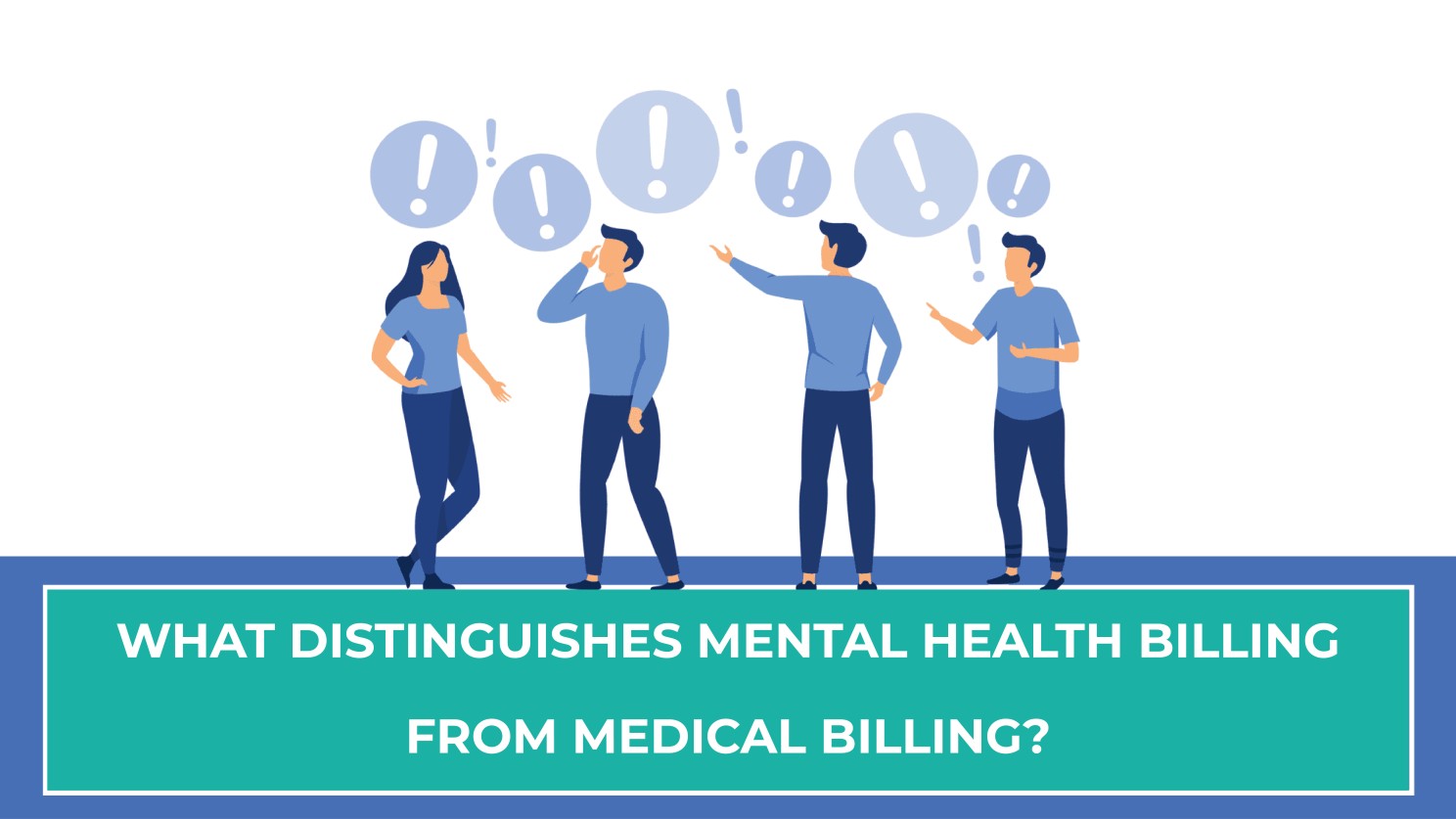 Furthermore, mental health billing necessitates special codes, such as the Evaluation and Management (E/M) codes. These codes are used to represent the amount of complexity and intensity of a treatment session or psychiatric evaluation.
Psychiatric evaluation codes and E/M (Evaluation management) codes are two types of codes these healthcare professionals encounter. When a new medical issue is being evaluated, E/M codes should be utilized to provide three crucial pieces of documentation: the history, the examination, and the medical judgment.
The duration computed for both sessions may differ. However, psychiatric evaluation codes define the diagnostic assessment and include E/M services. This should be applied effectively to lower the likelihood of claim rejections. And understanding these codes is critical for accurate invoicing and reimbursement.
Furthermore, mental health billing necessitates special codes, such as the Evaluation and Management (E/M) codes. These codes are used to represent the amount of complexity and intensity of a treatment session or psychiatric evaluation.
Psychiatric evaluation codes and E/M (Evaluation management) codes are two types of codes these healthcare professionals encounter. When a new medical issue is being evaluated, E/M codes should be utilized to provide three crucial pieces of documentation: the history, the examination, and the medical judgment.
The duration computed for both sessions may differ. However, psychiatric evaluation codes define the diagnostic assessment and include E/M services. This should be applied effectively to lower the likelihood of claim rejections. And understanding these codes is critical for accurate invoicing and reimbursement.
How are mental health services billed?
To ensure accurate and prompt reimbursement, billing for mental health services comprises several crucial stages. First and foremost, collecting all relevant patient information, such as demographic information, insurance coverage, and pre-authorization criteria, is critical. This data will aid in streamlining the invoicing process and avoiding potential claim denials. Following that, mental health providers must meticulously document the services rendered during each treatment session or psychiatric examination. This involves writing the session's start and end hours, the type of service provided, and any other processes carried out. Correct coding and billing require accurate documentation. Once the services have been properly documented, ASP RCM Coders will issue CPT (Current Procedural Terminology) codes to each. These codes help identify and bill for specific mental health interventions, such as individual therapy, group therapy, or medication management. Coding correctly is critical to ensuring accurate reimbursement and compliance with billing standards.The impact of uniformity on mental health billing
One significant challenge in mental health billing is the lack of standardization across different payers and insurance companies. Unlike medical billing, mental health billing lacks uniformity with established coding guidelines and billing practices. This lack of standardization can lead to confusion and errors in the billing process, resulting in delayed or denied claims. To overcome this challenge, mental health providers must stay current with each insurance company's billing requirements and guidelines. This includes understanding the specific documentation and coding requirements for mental health services and staying informed about any changes or updates in billing regulations.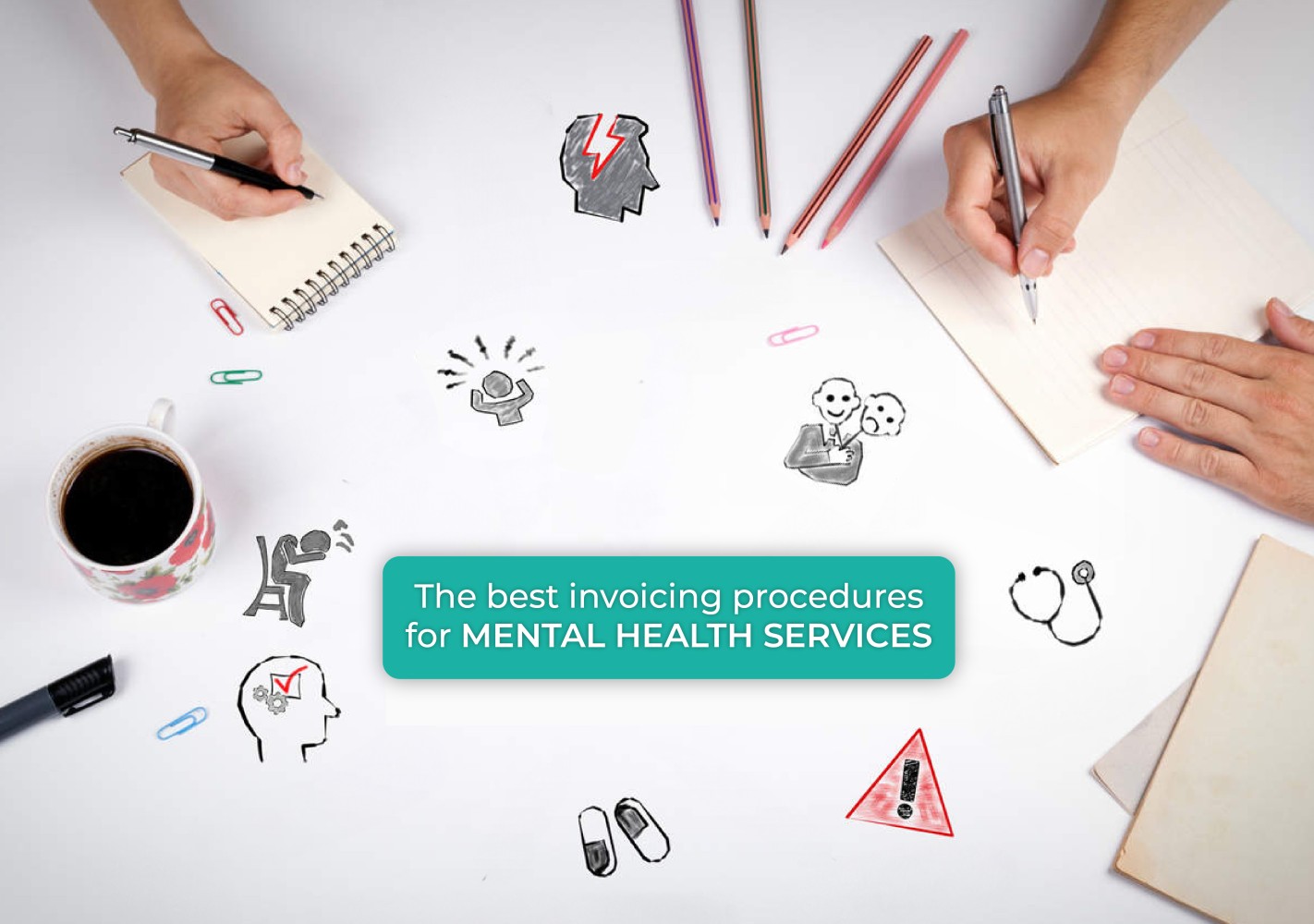 Mental health practitioners may consider applying the following best practices to optimize the billing process and maximize reimbursement:
Verify insurance coverage and benefits: It is critical to verify the patient's insurance coverage and benefits before delivering mental health services. Check for pre-authorization requirements, coverage limitations, and any billing standards established by the insurance company. Verifying insurance coverage in advance helps to avoid claim denials and reimbursement delays. The gist of insurance coverage for mental health treatments
Private insurance: Many individuals have private insurance plans through their employers or purchased independently. These plans vary in coverage and may have specific mental health benefits.
Medicare: Medicare is a federal health insurance program primarily for individuals aged 65 and older. It provides coverage for mental health services, including outpatient counseling and psychiatric care.
Medicaid: Medicaid is a joint federal and state program that provides health insurance to low-income individuals and families. It covers a range of mental health services, including therapy and medication management.
Tricare and other government programs: Tricare is a health insurance program for active-duty and retired military personnel and their families. Other government programs, such as the Children's Health Insurance Program (CHIP), may also provide coverage for mental health services.
Keep updated on coding and billing guidelines: Mental health practitioners should frequently examine and become acquainted with the most recent procedures and invoicing requirements for mental health services. This involves staying current on changes to diagnostic criteria, assessment and management codes, and payer obligations.
Maintain correct documentation: Accurate and precise documentation is essential for successful mental health billing. All services offered by mental health clinicians should be thoroughly documented, including the duration of each session, the nature of the interventions, and any additional procedures conducted. This level of specificity is required for appropriate coding and invoicing.
Set up a solid billing system: Using a dependable and effective billing system can help to simplify the mental health billing process. A strong billing system should offer automated coding suggestions, claim scrubbing for potential errors, and the ability to submit claims electronically. A solid billing system may save time, reduce errors, and boost efficiency.
Mental health practitioners may consider applying the following best practices to optimize the billing process and maximize reimbursement:
Verify insurance coverage and benefits: It is critical to verify the patient's insurance coverage and benefits before delivering mental health services. Check for pre-authorization requirements, coverage limitations, and any billing standards established by the insurance company. Verifying insurance coverage in advance helps to avoid claim denials and reimbursement delays. The gist of insurance coverage for mental health treatments
Private insurance: Many individuals have private insurance plans through their employers or purchased independently. These plans vary in coverage and may have specific mental health benefits.
Medicare: Medicare is a federal health insurance program primarily for individuals aged 65 and older. It provides coverage for mental health services, including outpatient counseling and psychiatric care.
Medicaid: Medicaid is a joint federal and state program that provides health insurance to low-income individuals and families. It covers a range of mental health services, including therapy and medication management.
Tricare and other government programs: Tricare is a health insurance program for active-duty and retired military personnel and their families. Other government programs, such as the Children's Health Insurance Program (CHIP), may also provide coverage for mental health services.
Keep updated on coding and billing guidelines: Mental health practitioners should frequently examine and become acquainted with the most recent procedures and invoicing requirements for mental health services. This involves staying current on changes to diagnostic criteria, assessment and management codes, and payer obligations.
Maintain correct documentation: Accurate and precise documentation is essential for successful mental health billing. All services offered by mental health clinicians should be thoroughly documented, including the duration of each session, the nature of the interventions, and any additional procedures conducted. This level of specificity is required for appropriate coding and invoicing.
Set up a solid billing system: Using a dependable and effective billing system can help to simplify the mental health billing process. A strong billing system should offer automated coding suggestions, claim scrubbing for potential errors, and the ability to submit claims electronically. A solid billing system may save time, reduce errors, and boost efficiency.
Conclusion
Running a successful mental health practice depends on accurate invoicing for mental health services. For mental health professionals to successfully navigate the complicated world of payment, it is crucial to comprehend the distinctive characteristics of mental health Revenue Cycle Management, such as the distinctions from medical billing, the effects of standardization, and best practices for billing. Mental health professionals can improve their revenue cycle management and concentrate on delivering high-quality patient treatment by staying informed, implementing best practices, and using effective billing systems.All Categories
Recent Posts
Stacy Calvaruso0 Comments
Unlocking Revenue Potential: Why CARC Codes Are Essential for Denial Management
Stacy Calvaruso0 Comments
Rising Claim Denial Rates: Challenges and Solutions for Healthcare Providers
Aparna Suresh0 Comments
